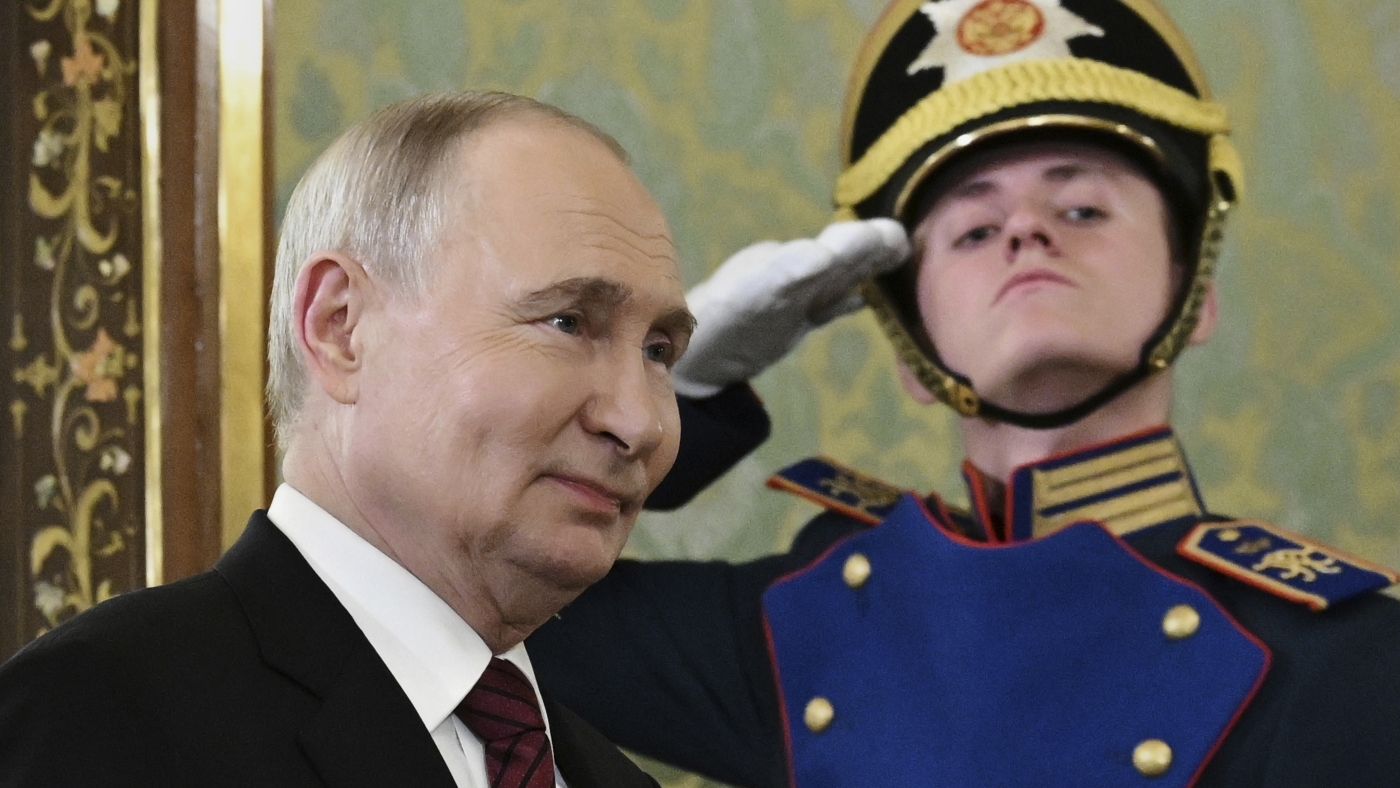Putin’s Proposal for Direct Peace Talks with Ukraine
A New Chapter in the Conflict
Russian President Vladimir Putin’s proposal for direct peace talks with Ukraine, announced on May 11, has injected a new dynamic into the ongoing conflict. The suggestion to begin negotiations on May 15 in Istanbul, Turkey, without any preconditions, has sparked a wave of international responses and speculations. This development comes at a critical juncture, with heightened tensions and calls for a ceasefire from Ukraine and its allies. The stage is set for a complex diplomatic dance, with the potential for significant breakthroughs or further entrenchment of the conflict.
The Context and Timing: A Delicate Balance
The timing of Putin’s proposal is strategic, coming amid intense pressure from the international community. Ukrainian President Volodymyr Zelenskyy, along with leaders from France, Germany, Poland, and the United Kingdom, had demanded an unconditional 30-day ceasefire. Putin’s offer to resume talks without preconditions can be seen as a tactical move to deflect international pressure and avoid further sanctions, rather than a genuine commitment to peace.
This initiative also follows the failed peace talks held in Istanbul earlier in 2022, shortly after Russia’s full-scale invasion. Those talks, facilitated by Turkish President Recep Tayyip Erdogan, did not result in a lasting peace agreement. Putin’s renewed push for negotiations indicates a willingness to engage in dialogue, potentially to buy time or to signal a shift in strategy.
Istanbul: A Strategic Choice
The choice of Istanbul as the venue for the talks is telling. Turkey, under Erdogan’s leadership, has walked a fine line in its relations with both Russia and Ukraine. Erdogan has previously acted as a mediator between the two nations and could play a crucial role in facilitating the proposed discussions. Istanbul, a city that straddles Europe and Asia, both geographically and culturally, serves as a neutral ground for these delicate negotiations.
Erdogan’s involvement could be pivotal in ensuring that both sides adhere to the talks’ framework. His ability to maintain a delicate balance in Turkey’s foreign policy could provide the necessary diplomatic cover for both Russia and Ukraine to engage in meaningful dialogue.
The Goals and Expectations: A Durable Peace?
Putin has framed the goal of these talks as achieving a “durable peace” and eliminating the root causes of the war. This language suggests a willingness to address the underlying issues driving the conflict, such as territorial disputes, security guarantees, and the status of Crimea. However, the proposal to hold talks “without preconditions” has raised eyebrows and questions.
Ukraine and its allies have been insistent on a ceasefire as a precondition for any meaningful negotiations. The lack of a clear commitment to a ceasefire in Putin’s proposal could pose a significant obstacle to the success of the talks. It remains to be seen whether Russia is genuinely committed to addressing the root causes of the conflict or is merely seeking to gain diplomatic leverage.
International Reactions: A Mixed Bag
The international community has responded to Putin’s proposal with a mix of cautious optimism and skepticism. U.S. President Donald Trump welcomed the initiative, suggesting it could be a step towards resolving the conflict. However, other leaders and analysts have expressed reservations, noting the lack of a clear commitment to a ceasefire and the history of unsuccessful talks.
The European Union and the United States have threatened coordinated sanctions if Russia does not commit to a ceasefire. These threats could influence Russia’s approach to the talks and the potential for a lasting peace agreement. The international community’s response will be crucial in determining the success or failure of these talks.
The Path Forward: Challenges and Opportunities
The success of Putin’s proposal hinges on several key factors. Firstly, Ukraine’s willingness to engage in talks without preconditions will be crucial. Ukraine and its allies have been firm in their demand for a ceasefire, and any deviation from this stance could be seen as a concession to Russia.
Secondly, the role of Turkey as a facilitator will be pivotal. Erdogan’s ability to mediate and ensure that both sides adhere to the talks’ framework will be essential. His diplomatic skills and Turkey’s strategic position could provide the necessary environment for constructive dialogue.
Moreover, the international community’s response will play a significant role. The threats of coordinated sanctions from the EU and the U.S. could influence Russia’s approach to the talks. The international community’s support for Ukraine and its demands for a ceasefire will be crucial in determining the outcome of these talks.
Conclusion: A Crossroads for Peace
Putin’s proposal for direct peace talks with Ukraine in Istanbul on May 15 represents a crossroads in the ongoing conflict. The initiative, while offering a glimmer of hope, faces significant challenges. The lack of a clear commitment to a ceasefire, the history of unsuccessful negotiations, and the complex geopolitical dynamics at play all pose obstacles to the success of these talks.
The path forward will depend on the willingness of both sides to engage in meaningful dialogue, the role of Turkey as a mediator, and the international community’s response. If successful, these talks could pave the way for a durable peace and the elimination of the root causes of the war. However, if they fail, the conflict could deepen, with grave consequences for the region and the world. The stakes are high, and the world watches with bated breath, hoping for a breakthrough that could bring an end to the suffering and destruction.

